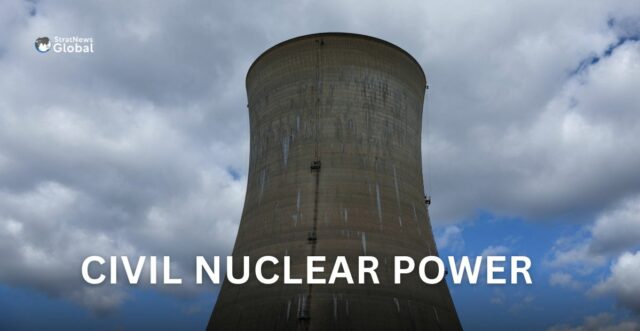Indonesia is in talks with the United States and Russia about acquiring technology to develop nuclear power plants, an Indonesian government deputy minister told Reuters on Friday.
Indonesia’s Nuclear Ambitions
Southeast Asia’s biggest economy is looking at operating nuclear power plants as early as 2036 to cut its dependence on fossil fuels, said Vivi Yulaswati, deputy minister at the Ministry of National Development Planning.
It is open to both small modular reactors and conventional nuclear technology, she said in a video interview.
In Indonesia, nuclear power plants have been a controversial topic as the country is prone to earthquakes. When asked if orders have been placed, Yulaswati said it was too early for that to have happened.
“We have to get a blessing from the president, and of course, we have to talk with international partners. I think, very long journey still,” she said.
Thirty countries, nine of which are in Asia, use nuclear power for electricity generation, data from energy think tank Ember shows.
Indonesia, a country of over 275 million people, accounts for the lion’s share of increasing coal use for power generation in Southeast Asia. More than half of its current capacity is powered by coal and clean energy sources including hydropower account for less than 15%.
Insufficient Funds
The country, however, plans to offer international investors opportunities to build 75 gigawatts (GW) of renewable power over the next 15 years.
But funding remains an issue. Indonesia was promised $20 billion as part of the G7’s Just Energy Transition Partnership (JETP) unveiled in 2022, but very little money has been disbursed and that slow progress has hampered its efforts to cut emissions.
Yulaswati said JETP has so far approved grants for 33 decarbonisation projects in Indonesia worth $217.8 million, including one that would increase the number of electric vehicles on the tourist island of Bali. Another six projects worth $78.4 million are currently under discussion, she said.
Loans of up to $6.1 billion have been approved, mainly to upgrade the national grid and develop the renewable energy sector, she added.
Yulaswati said the interest rates for the loans have yet to be finalised. Rates on loans have been a contentious topic, with Indonesian officials blaming Western nations for not providing concessional funding under JETP.
The JETP projects have yet to be implemented, she said, adding that funding will start next year which is when Indonesia’s next 5-year economic planning cycle will begin.
(With inputs from Reuters)





